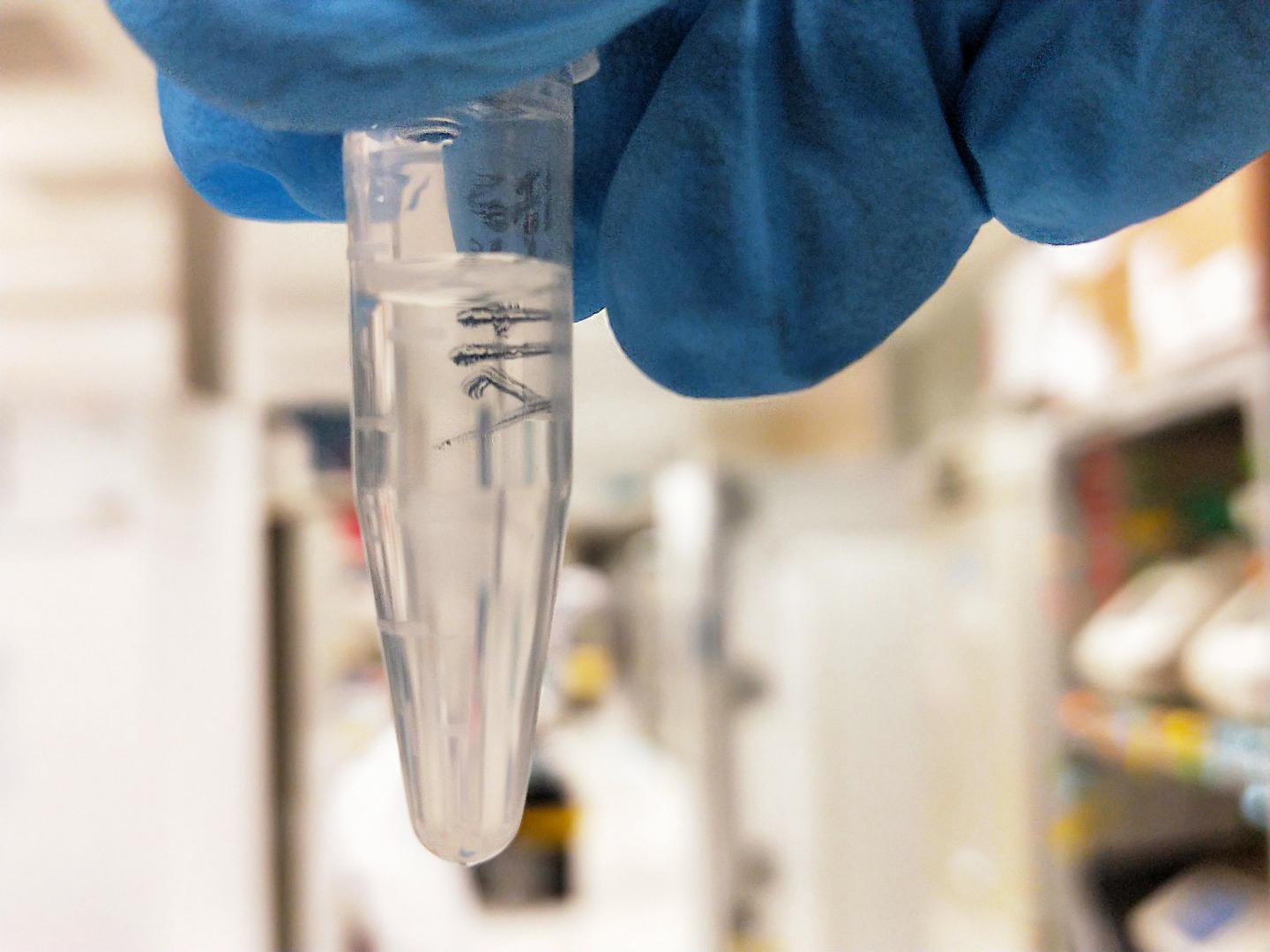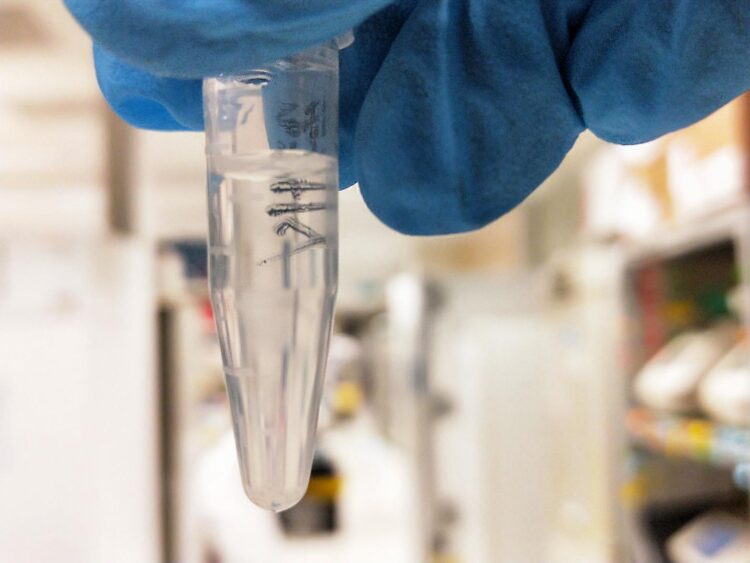Two novel discoveries led by Singapore team; sets pace for targeted therapy development among those diagnosed

Credit: A*STAR’s Genome Institute of Singapore (GIS)
22 December 2020, Singapore – For over 20 years, the Genetics Service at the KK Women’s and Children’s Hospital (KKH) has been providing clinical care to patients with genetic
disorders. In 2014, BRIDGES (Bringing Research Innovations for the Diagnosis of GEnetic diseases in Singapore) was set up, in collaboration with genomic research institutes at SingHealth, Agency for Science, Technology and Research (A*STAR) and Duke-NUS to synergise the diagnostic efforts and patient outcome management.
After six years, the KKH has met the goals set out in its BRIDGES programme, achieving 39 per cent in diagnostic yield through identifying more patients with genetic mutations. This result is on par with similar research programmes globally which have a diagnostic yield of 25 to 40 per cent.
BRIDGES has helped 160 children with rare and undiagnosed conditions to receive proper diagnoses, and enabled doctors to provide better care to them and their families. In addition, six of these children were diagnosed with a new disease that had never been reported before, with two of these discoveries being led by the team of KKH clinicians and A*STAR scientists in Singapore:
- PKB Syndrome – the first human report of mutation in the EIF6 gene in a six-year-old Chinese boy who had features like those for Shwachman-Diamond syndrome (SDS), a rare disorder characterised by pancreatic insufficiency and bone marrow failure. The clinical symptoms had not previously been associated with the EIF6 gene and the PKB Syndrome was named after the doctor who first identified the unique cluster of symptoms, Professor Phua Kong Boo, Senior Consultant, Gastroenterology, Hepatology & Nutrition
Service, Department of Paediatrics at KKH. The findings were published on 13 July 20201; and - Jamuar Syndrome — the world’s first known case of a genetic syndrome in two Indian sisters with a unique clinical profile that presented epileptic seizures and developmental elays. Jamuar Syndrome was named after Dr Saumya Jamuar, Senior Consultant, Genetics Services, Department of Paediatrics at KKH, who first recognised the clinical features as a new disorder. The findings were published on 30 January 2020.2
Professor Patrick Tan, Executive Director of the Genome Institute of Singapore, said “Genetics is a useful tool to gain insight into the underlying causes of childhood disorders, and explore possible treatment strategies. The BRIDGES programme illustrates the potential of multi-institutional collaboration working closely to solve problems of medical importance.”
Professor Roger Foo, Senior Group Leader of the Laboratory of Molecular Epigenomics and Chromatin Organisation, Principal Investigator of the Biomedical Research Council (BMRC)- funded Singapore Rare Disease programme (SUREKids), said, “This is a great advance for patients in our clinics. The powerful technology and science of Next Generation Sequencing can radically change the way we treat our patients. We are now seeing the evident proof of this today.”
Bridging the unknown to a diagnosis, and making timely discoveries
For the majority of patients and their families, living with rare, undiagnosed disorders is a long and trying journey. Even knowledge of the underlying cause to the disorder offers relief and a positive step toward finding targeted options for treatment and symptom management.
In cases of critically-ill children and especially those with suspected genetic disorders, timely yet definitive diagnoses are often essential. Under BRIDGES, the Rapid Genomic Sequencing test (RapidSeq) was developed for cases in the neonatal and paediatric intensive care units.
Compared to the typical turnaround from two to three months for standard sequencing results, RapidSeq has been able to expedite that to 10 working days. This is crucial to help families make decisions about the care options available to their children.
Taking precision medicine mainstream Since 2014, BRIDGES has completed analysis for 412 families and made a diagnosis in 160 families (39 per cent), leading to tailored clinical management and improved health outcomes in at least one of three families. To hasten and foster access to full spectrum of risk assessment, testing and genetic counselling, the SingHealth Duke-NUS Genomic Medicine Center (SDGMC) was set up in 2019 to set up specialty genetics clinics at all hospitals and institutions under SingHealth.
Dr Saumya Jamuar, Senior Consultant at KKH and Head of SDGMC said, “The success of the BRIDGES programme has helped us to diagnose many more patients with rare childhood disorders as compared to the past. Moving forward, with improved understanding of the causes to these genetic disorders, we are exploring collaborations to identify therapeutic targets and develop treatments for these children.”
###
BRIDGES was supported by grants from SingHealth Duke-NUS Paediatric Academic Clinical Programme, SingHealth Duke-NUS Academic Medical Centre, Strategic Positioning Fund by A*STAR, SUREKids, as well as National Medical Research Council and Biomedical Research Council by the Ministry of Health.
1 ‘Heterozygous missense variant in EIF6 gene: A novel form of Shwachman-Diamond syndrome?’,
American Journal of Medical Genetics, Wiley Online Library, 13 July 2020
2 ‘Loss-of-function mutations in UDP-Glucose 6-Dehydrogenase cause recessive developmental
epileptic encephalopathy’, Nature Communications, 30 January 2020
For more information, please contact:
KK Women’s and Children’s Hospital
Ms Charlotte Sam
Deputy Director
Corporate Communications
KK Women’s and Children’s Hospital
Tel: 6394 2016
Email: [email protected]
Lyn Lai
Officer, Office of Corporate Communications
Genome Institute of Singapore, A*STAR
Tel: +65 6808 8258
HP: +65 8755 8759
Email: [email protected]
About KK Women’s and Children’s Hospital
KK Women’s and Children’s Hospital (KKH) is Singapore’s largest tertiary referral centre for Obstetrics, Gynaecology, Paediatrics and Neonatology. Founded in 1858, the academic medical institution specialises in the management of high-risk conditions in women and children. A team of about 500 specialists adopt a compassionate, multi-disciplinary and holistic approach to treatment, and harness medical innovations and technology to deliver the best medical care possible. As an Academic Medical Centre, KKH is a major teaching hospital for all three medical schools in Singapore, Duke-NUS Medical School, Yong Loo Lin School of Medicine and Lee Kong Chian School of Medicine. The 830-bed hospital also runs the largest specialist training programme for Obstetrics and Gynaecology and Paediatrics in the country. Both programmes are accredited by the Accreditation Council for Graduate Medical Education International (ACGME-I), and are highly rated for the high quality of clinical teaching and the commitment to translational research. For more information, please visit http://www.
About A*STAR’s Genome Institute of Singapore (GIS)
The Genome Institute of Singapore (GIS) is an institute of the Agency for Science, Technology and Research (A*STAR). It has a global vision that seeks to use genomic sciences to achieve extraordinary improvements in human health and public prosperity. Established in 2000 as a centre for genomic discovery, the GIS pursues the integration of technology, genetics and biology towards academic, economic and societal impact, with a mission to “read, reveal and
write DNA for a better Singapore and world”.
Key research areas at the GIS include Precision Medicine & Population Genomics, Genome Informatics, Spatial & Single Cell Systems, Epigenetic & Epitranscriptomic Regulation, Genome Architecture & Design, and Sequencing Platforms. The genomics infrastructure at the GIS is also utilised to train new scientific talent, to function as a bridge for academic and industrial research, and to explore scientific questions of high impact. For more information about GIS, please visit http://www.
About the Agency for Science, Technology and Research (A*STAR)
The Agency for Science, Technology and Research (A*STAR) is Singapore’s lead public sector R&D agency, spearheading economic-oriented research to advance scientific discovery and develop innovative technology. Through open innovation, we collaborate with our partners in both the public and private sectors to benefit society. As a Science and Technology Organisation, A*STAR bridges the gap between academia and industry. Our research creates economic growth and jobs for Singapore, and enhances lives by contributing to societal benefits such as improving outcomes in healthcare, urban living, and sustainability. We play a key role in nurturing and developing a diversity of talent and leaders in our Agency and research entities, the wider research community and industry. A*STAR’s R&D activities span biomedical sciences and physical sciences and engineering, with research entities primarily located in Biopolis and Fusionopolis. For ongoing news, visit http://www.
Media Contact
Charlotte Sam
[email protected]





